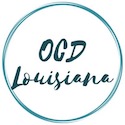Written by Chance McNeely
What is peer support?
Surrounding yourself with empathic people “who get it” is a great tool for anyone enduring life’s ups and downs. Achieving this can be difficult, though, especially for people who suffer from mental health challenges. The concept of peer support has been around for decades and, in 2007, the service was officially established as being “evidence-based” by the Center for Medicare and Medicaid Services. This simply means that evidence shows a substantive, positive correlation between peer support and long-term recovery. Over the past 15 years, peer support has grown as a profession where individuals with lived experience contribute to the recovery of others in a variety of settings: from long-term, in-patient facilities to private, telehealth peer services and everything in between.
Is Peer Support Like Treatment?
First and foremost, peer support is not a treatment or a substitute for treatment. The goal of peer support is to meet a peer wherever they are in their journey to help normalize their experience and provide hope. Peers have the unique ability to share their own lived experience in a way that can help to give sufferers the courage to stick to treatment. While the relationship between peers is both professional and with boundaries, there is no real or perceived hierarchy of influence or control as can be experienced with clinicians. This dynamic allows for sufferers to feel more comfortable and ultimately empowered by being heard and seen by someone who gets it.
Peer Support for OCD
For those of us living with Obsessive Compulsive Disorder, empathic people “who get it” can be hard to find. It’s becoming well known that OCD sufferers often endure this condition in silence for decades before seeking or receiving proper treatment. While many factors contribute to this dynamic, OCD sufferers – who spend hours each day resisting, testing, and/or avoiding thoughts, urges and sensations – are predisposed to struggle with self-worth, their sense of belonging in the world, and shame. By the time treatment is sought, often an individual suffering from OCD can be extremely depressed and have developed a variety of coping mechanisms, like substance use, to get through the day.
Peer support, in my case, provided me with the courage to leave behind a non-OCD specialist and seek someone trained in exposure and response prevention. Up until that point, I thought I was the reason that talk therapy wasn’t working. Perhaps more importantly, it gave me the courage to be honest with a trained clinician about the full nature and scope of my symptoms. Without the support of a peer, I am not sure I would have ever been willing to verbalize what it was really like to be me every day. Why? Because I had spent over two decades believing anything OCD had to say, one of which was: these things will come true if anyone ever knows. Until I met a peer, I had no good reason to think a different outcome was possible.
What Happens in Peer Support?
For individuals providing peer support, the goal is to truly listen and validate. Someone with OCD may talk to a peer about anything relevant to them at the time. The peer’s job is to provide a space for that individual to be seen and heard. Peers do help steer people through the recovery process but primarily through sharing their own lived experience. Peers do not provide advice but instead offer relatable stories that instill hope and increase the likelihood of a successful recovery journey.
Peer support can be utilized one time or dozens, before treatment, during treatment or after treatment. Sessions often range from 30-50 minutes. A peer supporter with OCD will know – through their own lived experience – the pitfalls of reassurance, so rest assured that peer support provided properly will not undermine treatment in any way. It is also not uncommon for a peer supporter to work with a clinician as part of the formal treatment process.
How to Become a Peer
The Louisiana Department of Health oversees the training and certification of peer supporters in Louisiana through its Office of Behavioral Health. The training in Louisiana is currently a two-week program with ongoing continuing education requirements after certification. Peer support job opportunities continue to expand in Louisiana and this career path can be very rewarding. For me, becoming a peer supporter has helped me grow in empathy for others and myself while helping me to feel a sense of meaning and purpose after having suffered in silence for so many years.
Chance McNeely is a certified peer support specialist in Louisiana who serves as treasurer of OCD Louisiana. Chance is a former recipient of peer support who is giving back to his community by offering those same services on a part-time basis.
